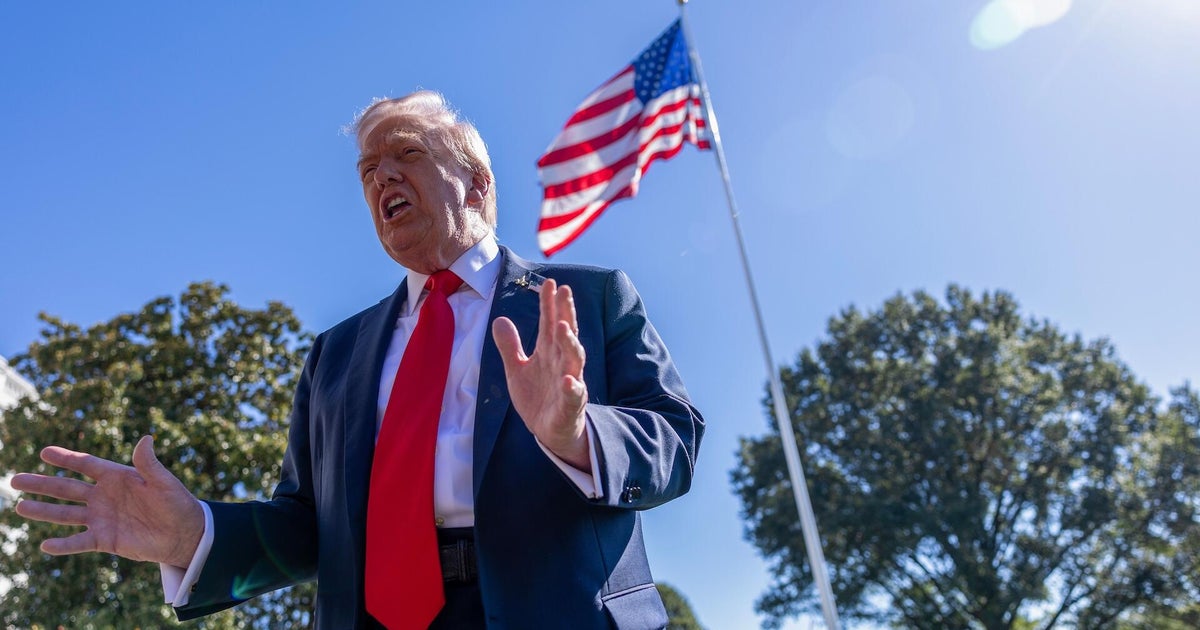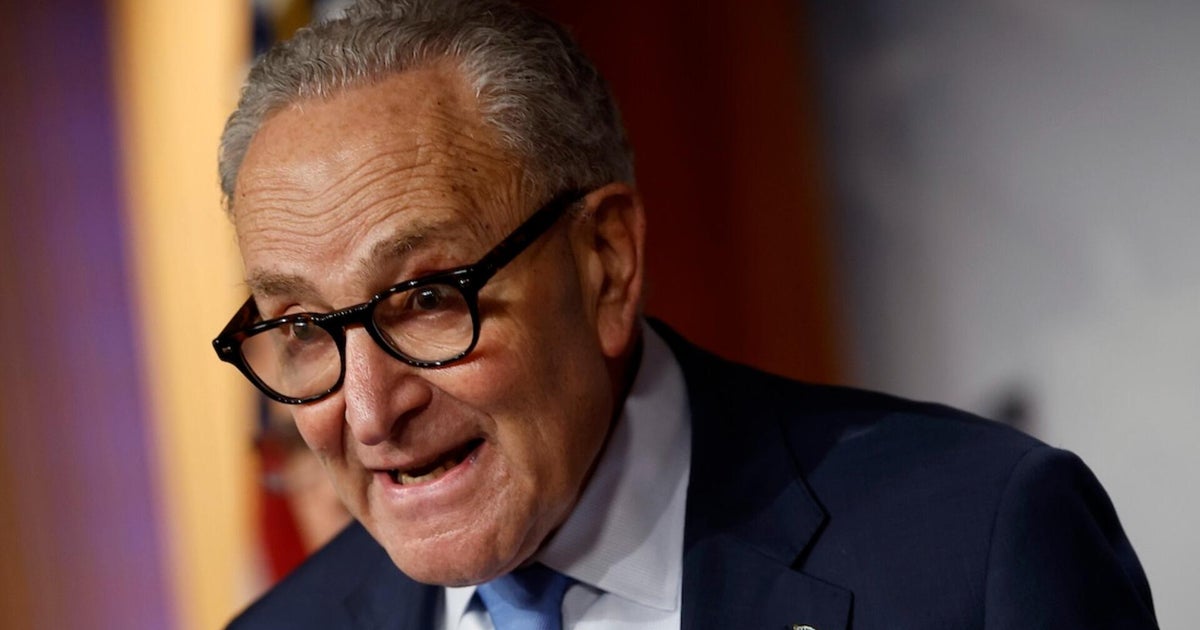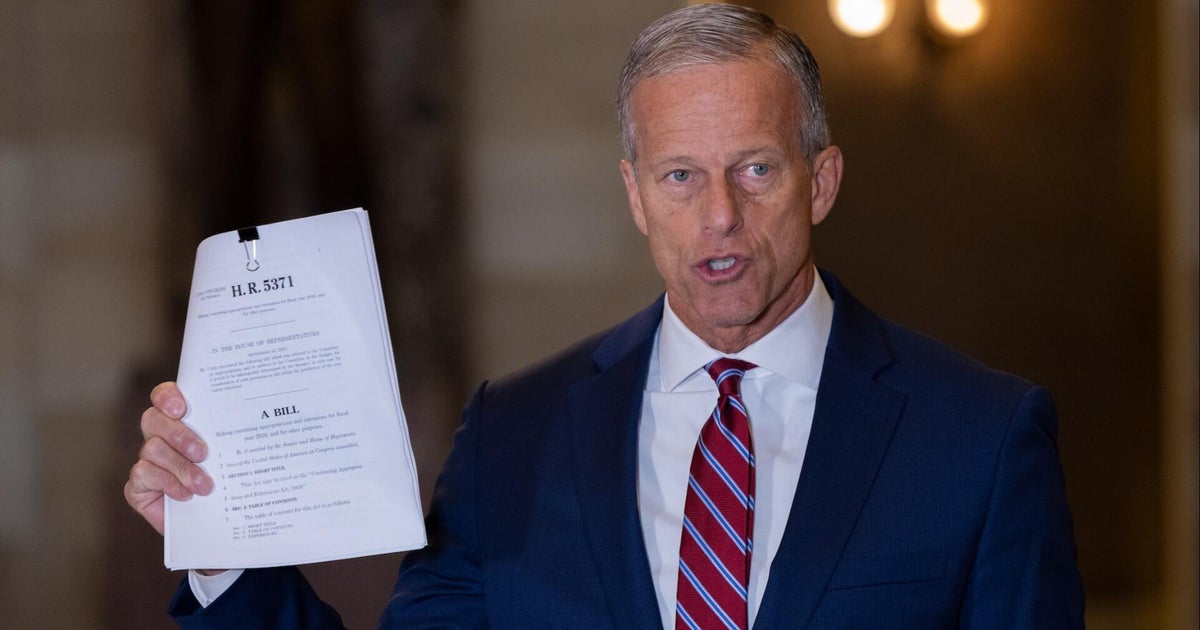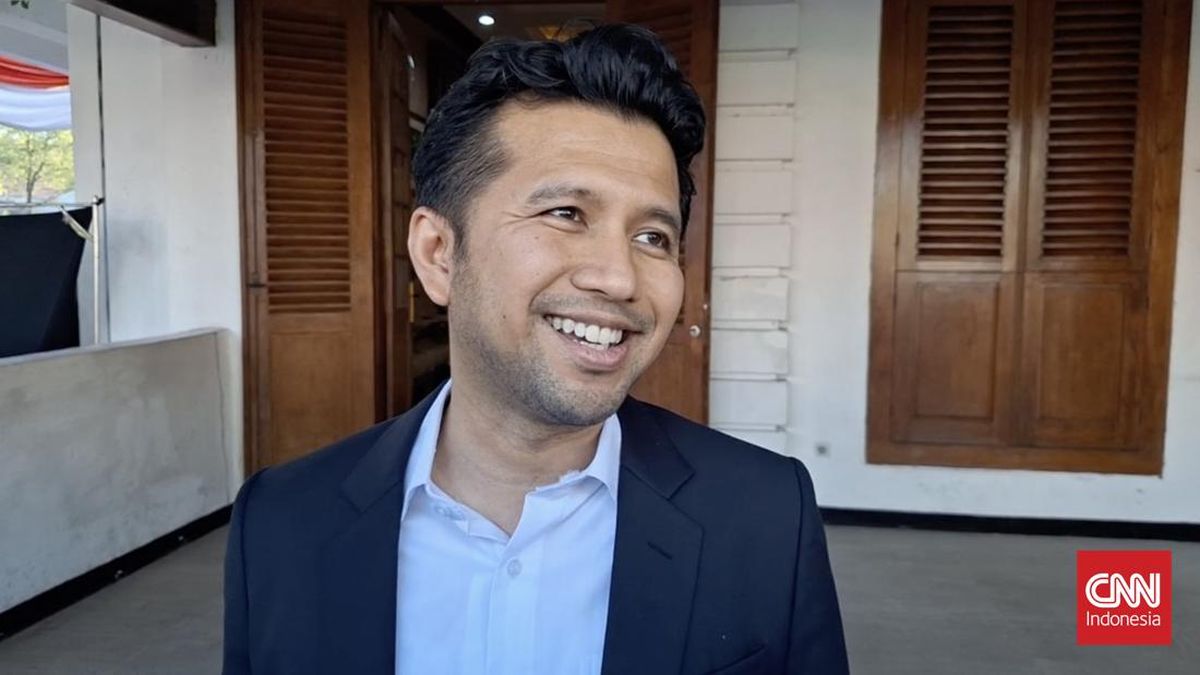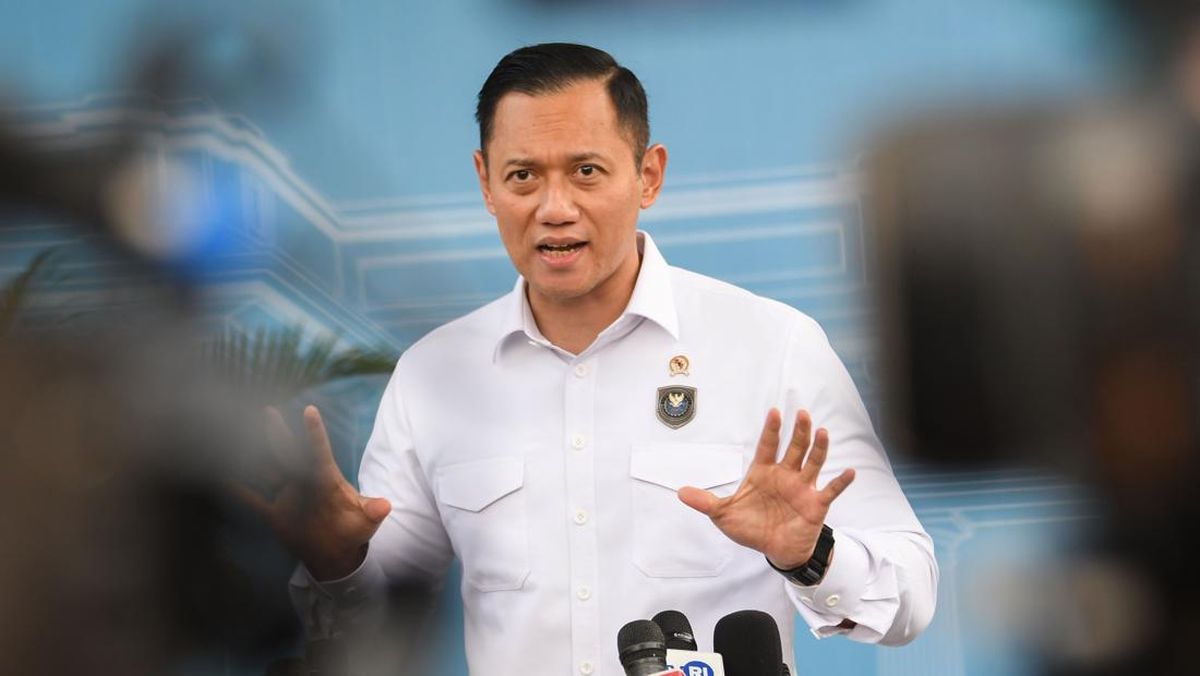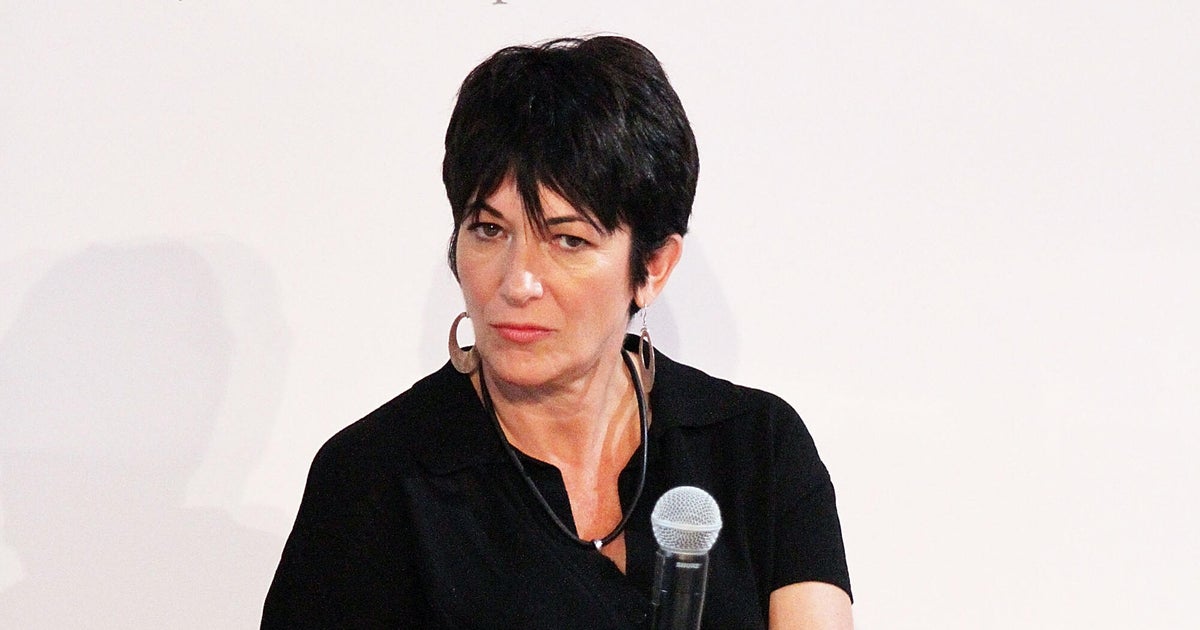French Prime Minister François Bayrou ousted
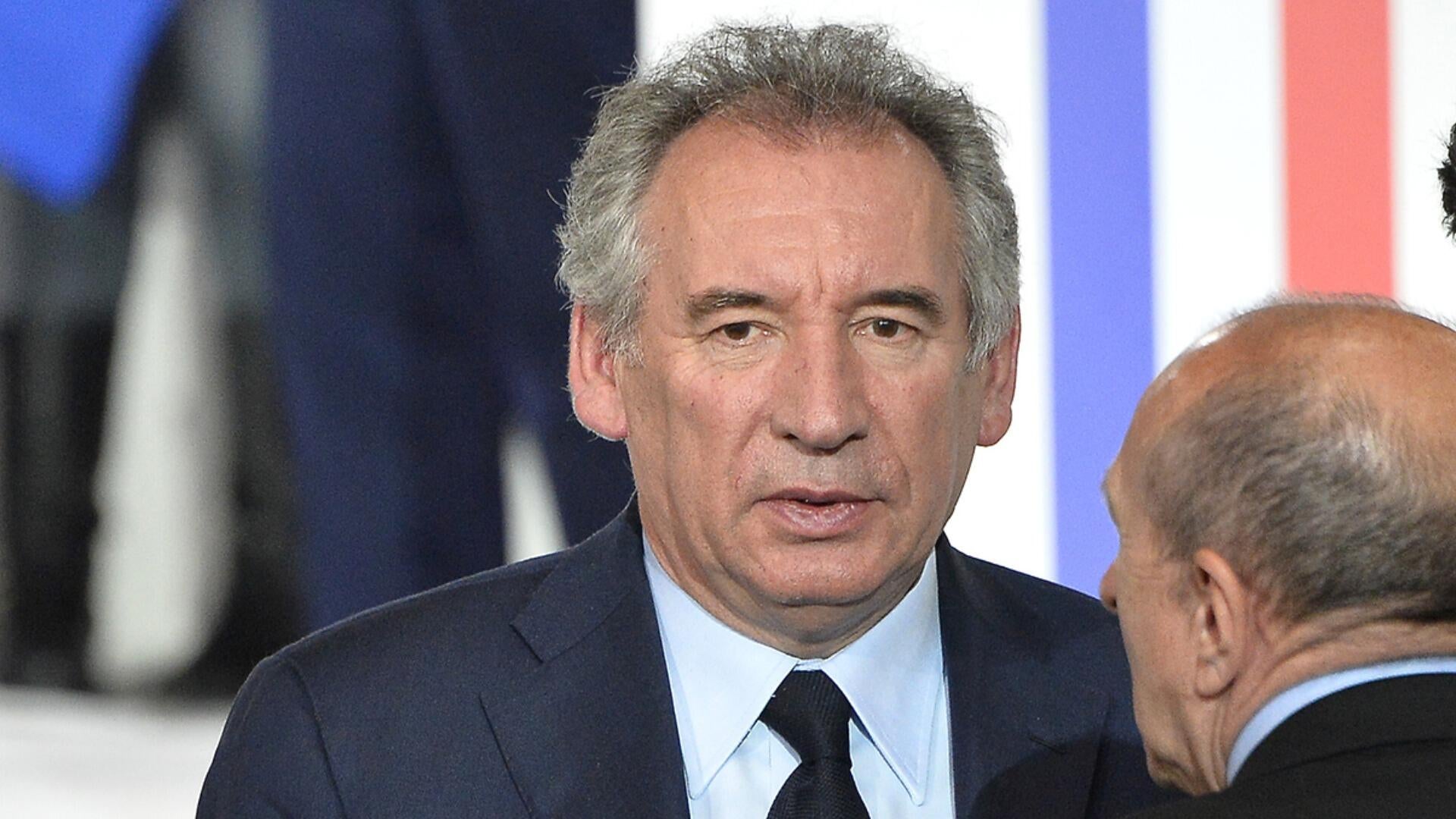
France's government collapsed Monday after the country's Prime Minister Sébastien Lecornu tendered his resignation less than a day after appointing his cabinet. The resignation of the country's second-highest-ranking public official plunged France further into a political crisis that has seen a rotating cast of five different prime ministers in less than two years.
France has been mired in political paralysis since President Emmanuel Macron, who appoints the prime minister, called snap national elections last year that left no political party with an outright majority in the parliament, which is called the National Assembly.
"The political parties continue to adopt a posture as if they all had an absolute majority in the National Assembly. And basically, I found myself in a situation where I was ready to compromise, but each political party wants the other political party to adopt its entire program," Lecornu said in his resignation speech on Monday.
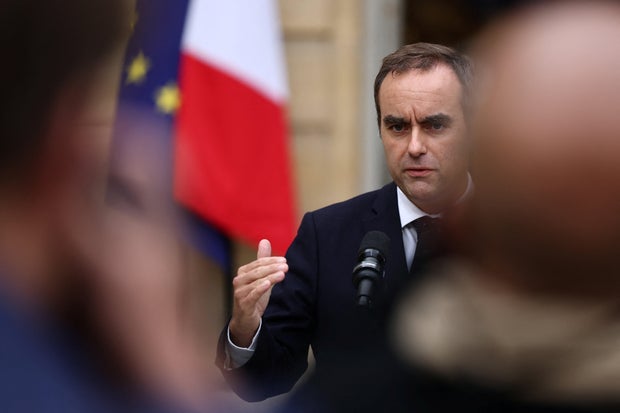 French outgoing Prime Minister Sebastien Lecornu, who presented his government's resignation to the French president, delivers a statement at the Hotel Matignon in Paris, France, Oct. 6, 2025.
Stephane Mahe/REUTERS
French outgoing Prime Minister Sebastien Lecornu, who presented his government's resignation to the French president, delivers a statement at the Hotel Matignon in Paris, France, Oct. 6, 2025.
Stephane Mahe/REUTERS
The leader of France's far-right movement, Marine Le Pen, called on Monday for new snap parliamentary elections in the aftermath of the government's collapse. Le Pen's anti-immigration, nationalist National Rally (RN) party was previously relegated to the fringes of national politics, but it has captured a considerable number of seats in the fragmented parliament in recent years.
"There is no solution, there won't be one tomorrow: I call on the President of the Republic to dissolve the National Assembly," Le Pen said in a social media post.
Lecornu, a political ally of the increasingly embattled Macron, held the position of prime minister for just less than a month, but only announced a new cabinet to govern the country on Sunday. Lecornu's decision to step down makes him the shortest-serving prime minister in the history of the Fifth French Republic.
Fearing an ascendant far-right, which also swept up many seats in European Union parliamentary elections in June 2024, Macron gambled on his party and its allies winning the surprise election for seats in the National Assembly that he called soon after. But his bet did not pay off, and his centrist coalition lost a huge number of seats to both Le Pen's party and an alliance of far-left parties.
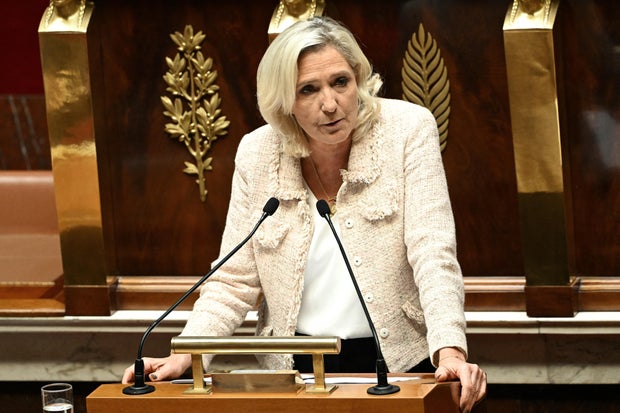 Marine Le Pen delivers a speech prior to a confidence vote over the government's austerity budget at the National Assembly in Paris on Sept. 8, 2025.
Bertrand Guay/AFP/Getty
Marine Le Pen delivers a speech prior to a confidence vote over the government's austerity budget at the National Assembly in Paris on Sept. 8, 2025.
Bertrand Guay/AFP/Getty
Political instability has followed ever since, with successive governments folding after coming up against a deadlocked National Assembly. The instability has been amplified by a growing national debt crisis and a ballooning budget deficit which have knocked confidence in the EU's second largest economy.
Last month, the U.S. credit ratings agency Fitch downgraded France's credit rating, citing "increased fragmentation and polarization of domestic politics," and a deterioration of the nation's public finances.
Lecornu's predecessor François Bayrou was ousted from power in September by a no confidence vote in the parliament after he failed to push through a budget program that would have cut public spending in an effort to address the country's mounting debt.
Nationwide strikes over potential austerity measures in the looming French government budget for 2026 have also caused chaos across the country in recent weeks.
On Thursday, thousands of protesters, led by students, trade unions and retirees, took to the streets of more than 200 towns and cities across France to denounce proposed spending cuts and demand higher taxes on the rich.
Emmet Lyons is a news desk editor at the CBS News London bureau, coordinating and producing stories for all CBS News platforms. Prior to joining CBS News, Emmet worked as a producer at CNN for four years.

